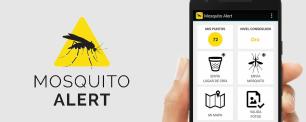Mosquito Alert citizen science project wins international WSA 2023 award
The citizen science project Mosquito Alert has received the international World Summit Awards (WSA) 2023, which recognises digital solutions that contribute to the achievement of the UN SDGs. The platform won in the 'Smart Settlements and Urbanisation' category, which highlights the importance of digital solutions to create healthier, more sustainable and inclusive urban environments.
The WSA Awards are a global initiative launched in the framework of the World Summit on the Information Society (WSIS) to recognise and promote digital solutions that have a positive impact on society and contribute to the United Nations Sustainable Development Goals.
Mosquito Alert, coordinated by Catalan and Spanish research institutions such as CSIC, UPF and CREAF, is a citizen observatory that is part of the CSIC's Interdisciplinary Thematic Platform (PTI) on Global Health. This project innovates traditional surveillance of disease-transmitting mosquitoes and studies invasive species through citizen participation and the use of new technologies.
The project has received more than 190,500 citizen notifications from 183 countries, which have provided insight into the spread of species such as the tiger mosquito and the Japanese mosquito. It has provided risk maps with unprecedented spatial and temporal resolution. This has been achieved through citizen engagement, the scientific community and the power of artificial intelligence to analyse data.
The transition of Mosquito Alert from a proof of concept to an innovation tool for the public sector is crucial to ensure its continuity. The platform contributes to several national and European projects and offers economic and social benefits to the public sector.
The recognition and participation of the project at the WSA 2024 Congress will provide a great opportunity to address its sustainability and the challenge of scalability worldwide, by sharing experiences with other global technological and social innovation projects.







